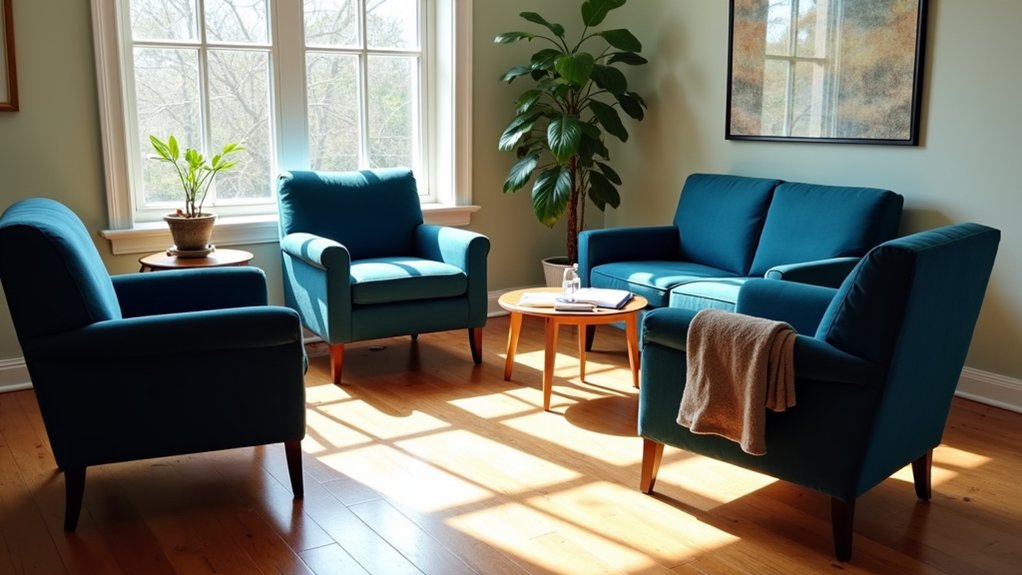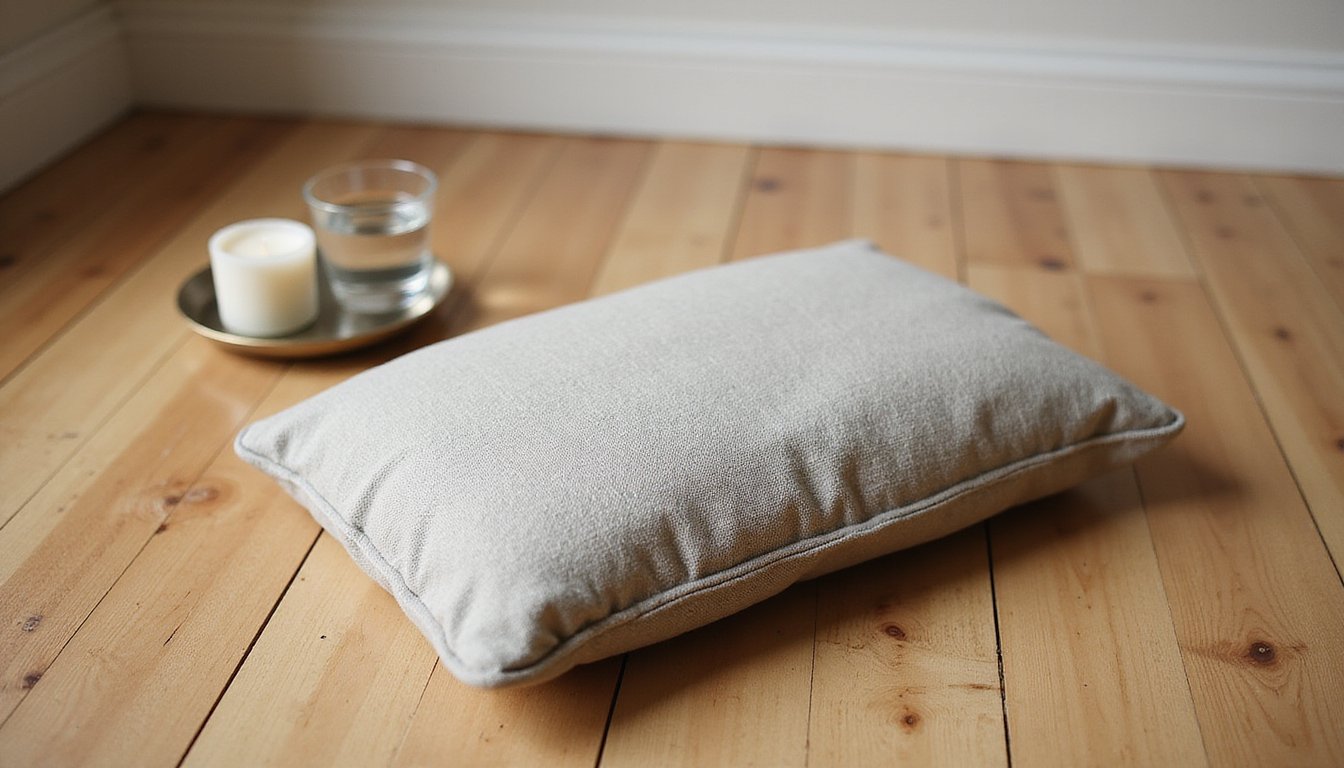Intensive outpatient programs (IOPs) support your recovery by combining evidence-based treatments with the flexibility to maintain your daily life. You’ll receive thorough care through multiple therapeutic approaches, including CBT and DBT, while attending sessions at convenient hours. With success rates of 60-70%, IOPs match the effectiveness of inpatient treatment and provide essential peer support, family involvement, and personalized treatment plans. Understanding the full scope of IOP benefits can help you make an informed choice for your recovery journey.
Understanding the Core Benefits of IOP Treatment

Recovery through an Intensive Outpatient Program (IOP) offers powerful advantages that bridge the gap between full-time residential care and traditional outpatient therapy. You’ll benefit from integrated care that combines evidence-based treatments while maintaining your daily responsibilities and relationships. Modern IOPs have evolved from their origins in the 1980s cocaine epidemic, expanding to serve a much broader population of clients.
IOPs provide structured flexibility, allowing you to attend therapy during convenient hours and return home each evening. You’ll receive thorough support through multiple therapeutic approaches, including CBT and DBT, while staying connected to your family and community. The program’s structure enables immediate application of coping skills in real-world situations, strengthening your recovery journey. The emphasis on peer group engagement creates additional support through shared experiences and mutual understanding. A multidisciplinary treatment team provides comprehensive care through psychiatrists, psychologists, and therapists working together.
With family involvement as a cornerstone of treatment, you’ll find support both at home and in therapy sessions. This balanced approach helps you build a sustainable foundation for long-term recovery while managing work, family, and personal commitments.
The Science Behind IOP Success Rates
While measuring success in addiction treatment can be complex, research consistently demonstrates the effectiveness of Intensive Outpatient Programs. Studies show IOPs achieve 60-70% success rates through evidence-based outcomes, comparable to inpatient treatment options. Your success potential greatly increases with proper screening and program alignment. A key advantage is that IOPs allow patients to maintain daily responsibilities while receiving treatment. The integration of comprehensive care addresses physical, emotional and psychological aspects of recovery. Treatment outcomes improve significantly when patients access evidence-based therapies and medical support.
| Success Factors | Impact | Quality Indicators |
|---|---|---|
| Patient Commitment | High | Regular Attendance |
| Treatment Quality | Critical | Evidence-Based Methods |
| Program Fit | Essential | Proper Screening |
You’ll find that success rates vary based on individual circumstances, but treatment quality plays a pivotal role in recovery outcomes. When you’re matched with an accredited facility that uses proven therapeutic approaches, you’re positioning yourself for the best possible results. Your motivation and consistent participation, combined with professional clinical support, create the foundation for sustainable recovery.
Flexible Treatment Options That Work

Understanding that life doesn’t pause during recovery, Intensive Outpatient Programs offer flexible treatment options that adapt to your schedule and circumstances. Through flexible scheduling, you can maintain your work and family commitments while receiving thorough care. Evening and weekend sessions guarantee you won’t have to choose between recovery and daily responsibilities. The stigma-free environment helps many individuals take their first steps toward healing. The program includes individual counseling sessions tailored to address your specific recovery needs. Using a professional care team, treatment can be customized to match your schedule and lifestyle needs.
Remote accessibility through telehealth platforms means you can participate from anywhere, making treatment possible even if you live in rural areas or face mobility challenges. You’ll receive personalized care plans that combine evidence-based therapies with practical solutions for your unique situation. Whether you choose in-person or virtual sessions, you’ll stay connected to your support network and community resources. This integrated approach helps you build sustainable recovery skills while maintaining your regular routines.
Building a Strong Recovery Foundation
Success in recovery requires a solid foundation built on proven strategies and extensive support. In intensive outpatient programs, you’ll develop essential coping strategies while maintaining your daily responsibilities. The structured environment helps you establish routines that strengthen your recovery journey, with proven results showing longer stays of 53-81 days markedly improve your chances of success. Patients can maintain their daily routines and independence while receiving comprehensive treatment.
Building a strong recovery means developing proven coping skills and support systems while maintaining life’s responsibilities through structured outpatient treatment.
- You’ll participate in group therapy sessions that connect you with peers who understand your challenges, helping build crucial support networks
- You’ll learn practical life skills and stress management techniques through vocational training and therapeutic interventions
- You’ll benefit from personalized treatment plans that combine behavioral therapies with medication-assisted treatment when needed, achieving up to 41% abstinence rates
Your foundation grows stronger through consistent engagement, family involvement, and ongoing aftercare support.
Measuring Long-Term Recovery Outcomes

Tracking your progress through intensive outpatient recovery requires thorough measurement across multiple dimensions. Through extensive outcome tracking, you’ll gain insights into your recovery journey while helping providers optimize your treatment plan. Regular feedback sessions and progress monitoring allow for early identification of potential challenges and swift adjustments to your care.
Recovery metrics focus on key indicators like abstinence rates, program participation, and community engagement. Data analytics integration enables personalized adjustments to treatment strategies based on individual response patterns. Initial studies reveal that inpatient stays offer higher treatment completion rates compared to outpatient programs. You’ll find that consistent involvement in mutual support groups and therapy sessions correlates strongly with reduced substance use. Data shows that those who maintain connections with peer networks and follow structured aftercare plans achieve better long-term outcomes. By participating in continuous progress assessment, you’re contributing to a deeper understanding of what works in recovery while strengthening your own path to sustained wellness.
Frequently Asked Questions
How Soon Can Family Members Participate in IOP Therapy Sessions?
You can typically begin family involvement in IOP therapy sessions within the first 2-4 weeks of your loved one’s treatment. However, some programs may wait until after initial stabilization (1-3 weeks) to guarantee ideal treatment engagement. Your participation timing depends on your family member’s readiness, therapist approval, and program requirements. Remember, you’ll need to be identified as part of their support network and may need to sign confidentiality forms before joining sessions.
What Happens if I Relapse During My IOP Treatment?
If you relapse during IOP treatment, don’t panic it’s a common part of recovery that your treatment team is prepared to handle. They’ll immediately increase your support through additional counseling sessions and help identify your specific relapse triggers. You’ll work together to strengthen your coping strategies and may need temporary adjustments to your treatment plan. Remember, a relapse isn’t failure it’s an opportunity to learn and build stronger recovery skills.
Can I Switch Between Morning and Evening IOP Sessions if Needed?
Yes, you can switch between morning and evening sessions to accommodate your changing schedule. Most IOPs offer session flexibility specifically to help you balance treatment with work, family, and other commitments. You’ll need to communicate with your treatment team about scheduling options and desired changes. They’ll work with you to guarantee you maintain consistent attendance while meeting your other responsibilities. This adaptability helps support your long-term recovery success.
Are Drug Tests Mandatory During IOP Treatment Programs?
Yes, drug testing is typically mandatory in IOP programs. You’ll need to comply with regular testing as part of your treatment plan, though specific drug testing policies vary by facility. Most programs require tests to monitor your progress, guarantee safety, and meet insurance requirements. If you’re in a non-abstinence program, they’ll use results to adjust your treatment rather than as grounds for dismissal. Testing helps support your recovery journey and maintain program integrity.
Do IOPS Provide Transportation Assistance for Attending Treatment Sessions?
While some IOPs offer transportation assistance, it’s not universally available – only about 35% of outpatient facilities provide transportation options. You might have access to facility shuttles, bus vouchers, or public transit passes to help with session attendance. If transportation is a concern, discuss this with your IOP provider, as they may offer alternatives like telehealth sessions or connect you with local ridesharing services to guarantee you can participate in treatment.





